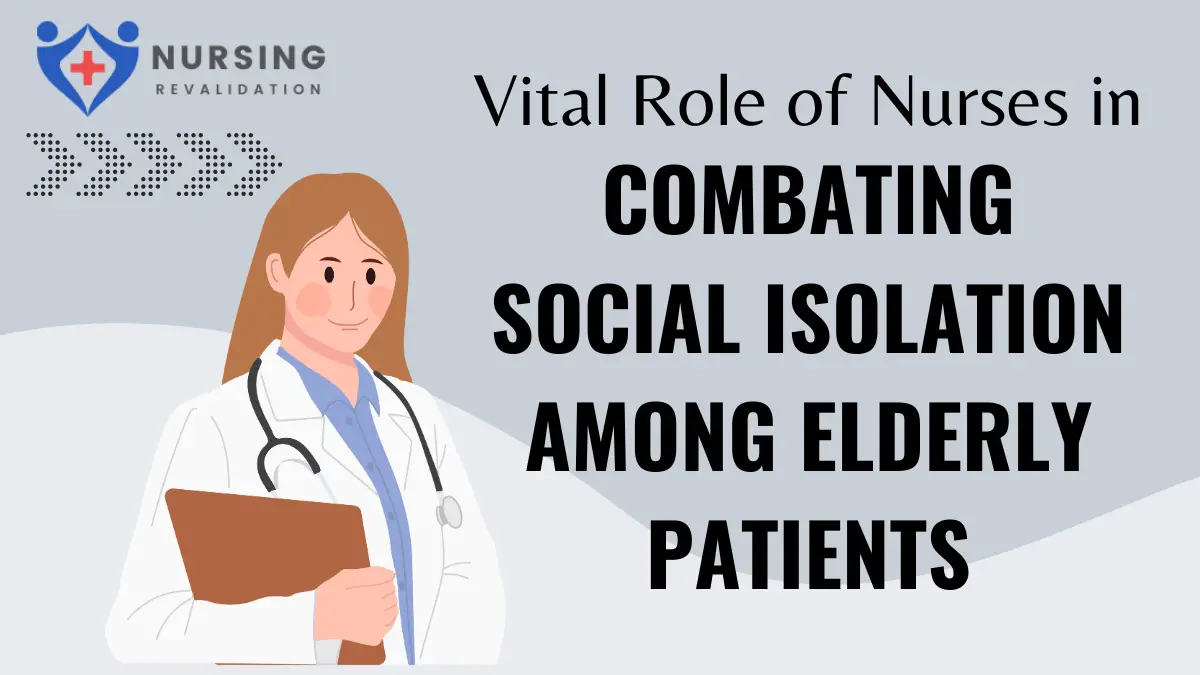Social isolation among the elderly is a pressing issue with significant implications for mental, emotional, and physical well-being. As our population ages, the importance of addressing this issue grows. Nurses, as frontline healthcare providers, play a crucial role in identifying, addressing, and mitigating social isolation among elderly patients. In this comprehensive guide, we delve into the multifaceted role nurses play in tackling this pervasive problem.
Understanding Social Isolation in the Elderly:
Before delving into the role of nurses, it’s essential to grasp the concept of social isolation among the elderly. Social isolation refers to a lack of meaningful social connections and interactions. This can stem from various factors, including physical limitations, loss of loved ones, geographical distance from family and friends, and societal stigma.
Table: Strategies for Addressing Social Isolation Among Elderly Patients
| Strategy | Description |
|---|---|
| Group Activities | Organize group activities within healthcare facilities to promote social interaction. |
| Technology Integration | Utilize technology, such as video calls and social media, to facilitate communication with loved ones. |
| Community Resources | Connect patients with community resources, such as senior centers or support groups. |
| Therapeutic Relationships | Foster trusting relationships with patients to create a safe space for open communication. |
| Holistic Care Planning | Develop comprehensive care plans that address both physical and social/emotional needs. |
The Impact of Social Isolation on Elderly Health:
Social isolation isn’t just a matter of loneliness; it has tangible effects on health. Research has linked social isolation among the elderly to increased risks of depression, anxiety, cognitive decline, cardiovascular diseases, and even mortality. The detrimental effects on mental and physical health underscore the urgency of addressing social isolation among elderly populations.
Nurses as Advocates and Educators:
Nurses serve as advocates for their elderly patients, ensuring their holistic well-being beyond physical health. Through patient assessments and interactions, nurses can identify signs of social isolation, such as withdrawal, apathy, or declining self-care. Furthermore, nurses are well-equipped to educate both patients and their families about the importance of social connections and strategies to combat isolation.
Facilitating Social Engagement:
One of the primary roles of nurses in addressing social isolation is facilitating social engagement. This can take various forms, such as organizing group activities within healthcare facilities, facilitating communication with loved ones through technology, or connecting patients with community resources, such as senior centers or support groups.
Building Trust and Therapeutic Relationships:
Nurses often form deep, trusting relationships with their elderly patients. This trust is invaluable in addressing social isolation, as patients may feel more comfortable opening up about their feelings of loneliness or isolation. By fostering therapeutic relationships, nurses create a safe space for patients to express themselves and seek support.
Implementing Holistic Care Plans:
Incorporating strategies to address social isolation into care plans is essential. Nurses can collaborate with interdisciplinary teams to develop holistic care plans that address not only the physical health needs of elderly patients but also their social and emotional well-being. This may involve coordinating with social workers, therapists, and community organizations to provide comprehensive support.
Utilizing Technology as a Tool:
In an increasingly digital world, nurses can leverage technology to combat social isolation among elderly patients. This may involve teaching patients how to use smartphones or computers to connect with loved ones via video calls or social media. Additionally, nurses can utilize telehealth services to provide virtual support and check-ins, particularly for patients who are homebound or living in remote areas.
Conclusion:
In conclusion, nurses play a pivotal role in addressing social isolation among elderly patients. Through advocacy, education, facilitation of social engagement, and holistic care planning, nurses can make a meaningful difference in the lives of elderly individuals struggling with loneliness and isolation. By recognizing the importance of addressing social isolation as part of comprehensive care, nurses can help improve the quality of life for elderly patients and promote overall well-being.


